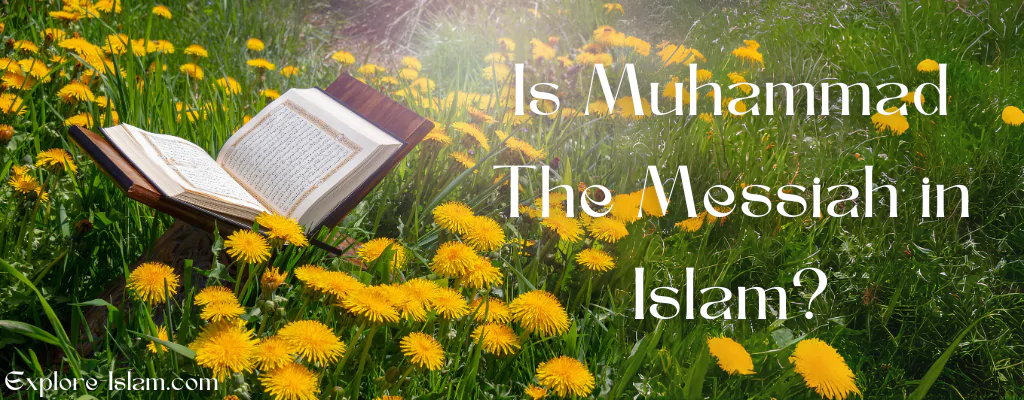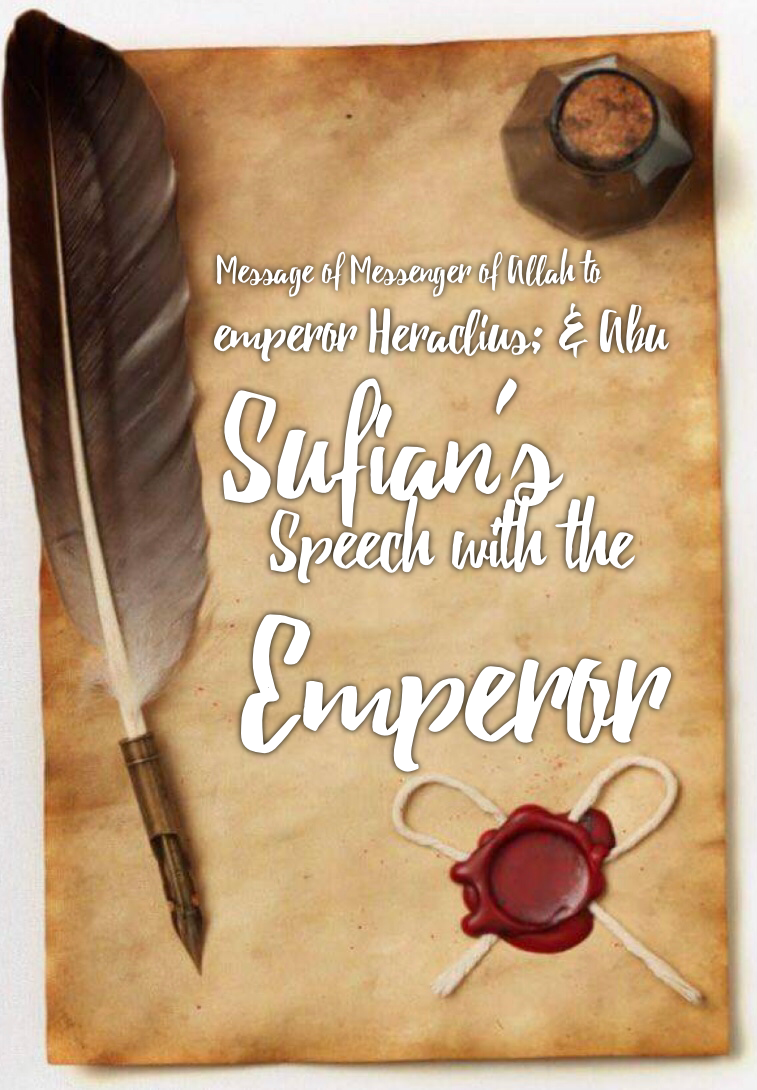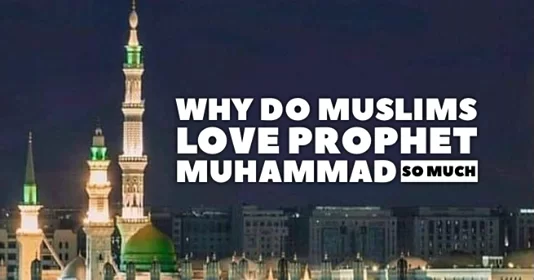This is a question that pops up a lot when people start searching about Islam, especially if they come from a Christian background.
It’s understandable!
People in the West are more familiar with Christianity and Judaism, leading them to interpret Islam through a similar lens, and it’s easy to get them mixed up when you’re looking at a faith that might be new to you.
So, let’s clear up the confusion and get to what Muslims believe about Messiah.
The short answer is no, Muhammad is not the Messiah in Islam. But to really get it, we need to explore the meaning of “Messiah,” see how it fits into different beliefs, and most importantly, understand how it relates to prophet Muhammad and the Islamic faith.
What Exactly Does “Messiah” Mean?
Messiah comes from the Hebrew word “Mashiach,” which means “anointed one.” In ancient times, anointing someone with oil was a way of setting them apart for a special, God-given purpose. Kings, priests, and prophets were often anointed.
So, a “Messiah” was someone chosen and empowered by God for a crucial mission.
The Messiah in the Jewish Tradition?
In the Jewish tradition, the Messiah is a figure prophesied in the Hebrew Bibl. He’s expected to be a descendant of King David, a leader who will usher in an era of peace, justice, and re-establishing the Davidic kingdom.
The Hebrew prophets foretold the coming of this promised messiah.
Is Muhammad the Jewish Messiah?
No, prophet Muhammad is NOT the Jewish Messiah. As we’ve seen, the term Messiah in Judaism carries specific expectations, such as re-establishing the Davidic kingdom. Neither Islam nor the prophet Muhammad claim this title in the context of Jewish theology
The Concept of the Messiah in Islam
In Islam, the term “Messiah” (Arabic: al-Masīḥ المسيح) is a title attributed specifically to Prophet Jesus (Arabic: Isa عيسى).
But, we don’t use the concept “Messiah” in the same way that other religions might. Instead, we talk about the return of Isa (Jesus), peace be upon him, and his role in the end times, but it’s important to understand what that actually means from an Islamic perspective as we will see in a moment.
Wait, Jesus is the Messiah in Islam?
Who Is the Messiah in Islam?
The Quran explicitly identifies Jesus (Isa, peace be upon him) as the Messiah:
“Indeed, the Messiah, Jesus, the son of Mary, was a messenger of Allah…”
BUT… the term Messiah in Islam does not carry the same theological implications as in Christianity.
The Role of Jesus as the Messiah in Islam
Islamic tradition refers to Jesus’ divinely appointed role, the Messiah is a chosen one sent by Allah to guide and deliver people. Jesus, as the Messiah in Islam, was sent to the Children of Israel to call them back to Allah andd the right path. Here are some key points:
- Miraculous Birth: Jesus was born to the Virgin Mary (“Marym”) without a father, a miracle described in Surah Maryam (Chapter 19, beginning from the verse 16).
- Prophetic Mission: He was sent to guide the Children of Israel, delivering the Injil as a revelation from Allah.
- Miracles: By Allah’s permission, Jesus performed extraordinary miracles, such as healing the blind, curing lepers, and bringing the dead back to life.
- Return Before the Day of Judgment: Jesus will return to Earth as a sign of the end times, defeat the false Messiah (Dajjal), and establish justice.
So, the title of Messiah signifies Jesus’s special mission and miraculous nature, but it does not imply divinity. In Islam, Jesus is neither God nor the son of God, but a servant and messenger of Allah.
The Quran strongly emphasizes the oneness and indivisibility of God (Tawhid), the core tenet of Islam.
So, if Jesus is the Messiah in Islam, then why isn’t prophet Muhammad?
Why is Muhammad Not the Messiah?
The reason prophet Muhammad is not the Messiah in Islam is quite simple: The Messiah had already come in the person of Jesus.
As we clarified, the concept of the Messiah in Islam is distinct and specifically associated with Jesus.
The role of the Messiah is tied to his miraculous birth, his prophetic mission to the Children of Israel, and his future return before the Day of Judgment.
Muslims believe Jesus will return to restore justice as mentioned in authentic narrations of the Prophet Muhammad:
“By Him in Whose Hands my soul is, surely the son of Mary (Jesus) will soon descend among you as a just ruler…”
(Sahih al-Bukhari, 3448)
To fully grasp why prophet Muhammad isn’t the Messiah, you need to understand his actual role in Islam. We believe that Allah has sent prophets throughout history to guide humanity. These prophets include figures familiar from the Bible, such as Noah, Abraham, Moses, and, yes, even Jesus. Each of these prophets brought a message from God, reaffirming the core principle of monotheism – the belief in one God.
Prophet Muhammad came later, not to replace prophet Jesus or to contradict his teachings, but to reaffirm the core message of monotheism – the belief in one God – that had been sent through all previous prophets.
This concept is mentioned in the Quran, where Allah says,
“And We sent not before you any messenger except that We revealed to him that, ‘There is no deity except Me, so worship Me'”
(Quran, 21:25).
“Indeed, We have revealed to you, [O Muhammad], as We revealed to Noah and the prophets after him. And we revealed to Abraham, Ishmael, Isaac, Jacob, the Descendants, Jesus, Job, Jonah, Aaron, and Solomon, and to David We gave the book [of Psalms].”
(Quran, 4:163).
What is the Prophet Muhammad’s Role in Islam?
Prophet Muhammad (peace be upon him) holds the title of Seal of the Prophets (Khatam an-Nabiyyin) in Islam. This means prophet Muhammad is the final prophet sent by Allah to humanity. Prophet Muhammad’s mission is universal, unlike earlier prophets who were sent to specific nations or communities. The Quran confirms this:
“Muhammad is not the father of [any] one of your men, but [he is] the Messenger of Allah and the Seal of the Prophets. And ever is Allah, of all things, Knowing.”
(Quran 33:40)
So, prophet Muhammad was sent to guide humanity to the worship of the one true God and to establish a complete way of life based on justice, compassion, and devotion.
Comparing the Messiah in Islam with Other Religions
As we said: In Judaism, the Messiah is a future Jewish king from the Davidic line who will redeem the Jewish people and humanity.
Christianity views Jesus as the Messiah, the savior, the redeemer, and God incarnate.
Islam, while acknowledging Jesus as the Messiah, differs from Christianity in its understanding of his nature and role.
Muslims believe Jesus was a prophet and messenger of Allah, but not divine.
Muslims also believe that Jesus will return to Earth at the end of times alongside the Mahdi, who will fill the earth with justice and equity.
Together, they will defeat the Antichrist (al-Masih ad-Dajjal) and establish justice.
This Brings Us to the Conclusion That…
In Islam, the Messiah is prophet Jesus (‘Isa, عيسى), not prophet Muhammad. Each prophet has a unique mission, and their roles are complementary, not conflicting. Prophet Muhammad is the final messenger, delivering Allah’s last revelation to humanity, while Jesus holds the title of Messiah with a distinct purpose, including his return to herald the final victory of truth over falsehood.
Islam acknowledges and honors all prophets, recognizing their collective contribution to guiding humanity toward the worship of the one true God.
If you’re curious about Islam, keep asking questions, keep reading, and keep seeking. The truth is out there, waiting to be discovered, waiting to resonate with you heart and soul.
May Allah guide all those seeking truth to His guidance and wisdom.




